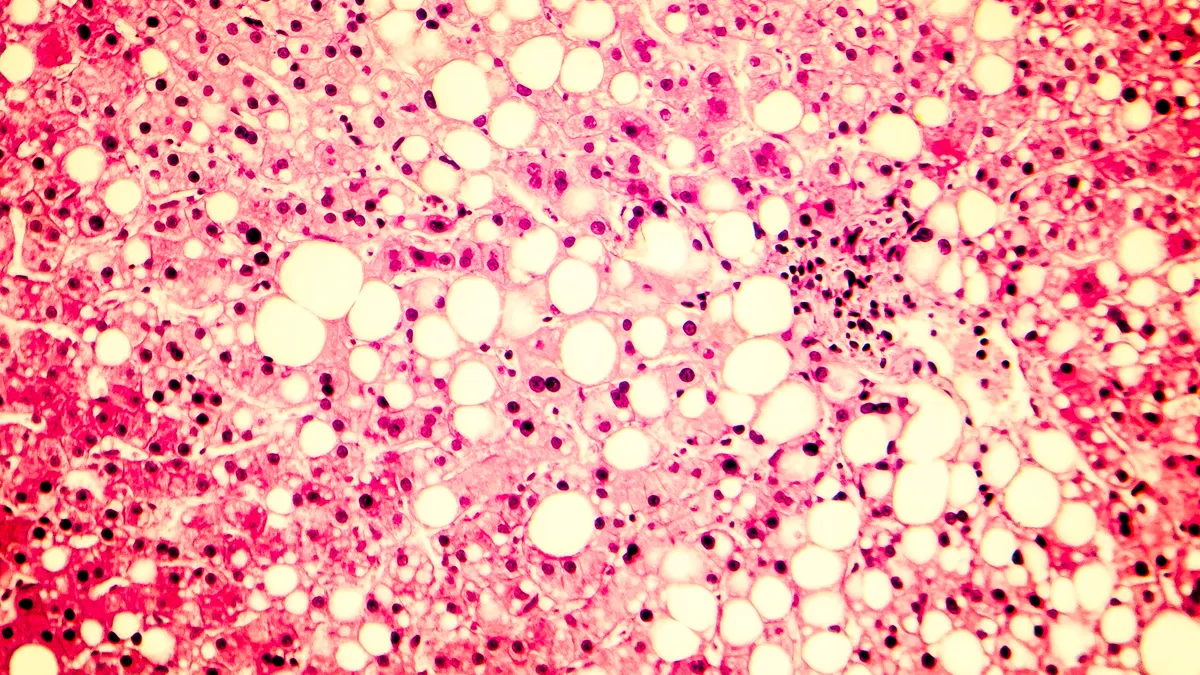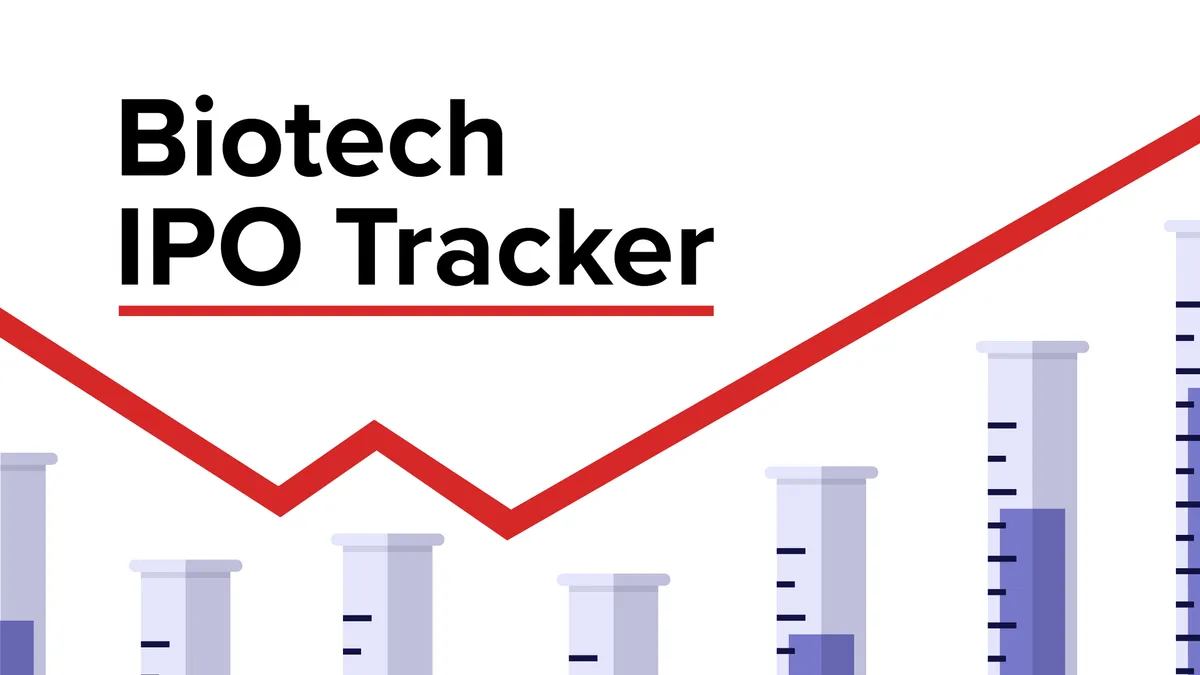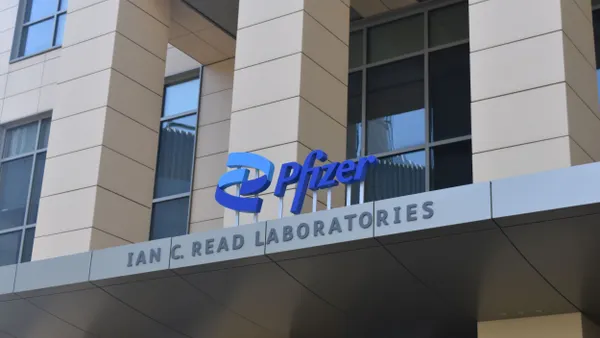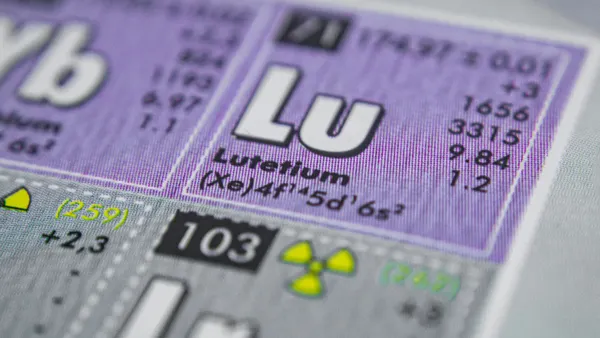Dive Brief:
- Treatment with an experimental drug from Akero Therapeutics substantially reversed liver damage in a mid-stage study of people with cirrhosis due to metabolic dysfunction-associated steatohepatitis, a common disease that was formerly known as NASH.
- Announced Monday by Akero, the study results exceeded investor expectations, more than doubling the value of shares in the biotechnology company. They also helped to push up the stock of 89bio, a competitor developing a similar type of drug to Akero’s.
- While the Food and Drug Administration last year approved the first treatment for MASH, its use is limited to people whose livers aren’t yet cirrhotic. According to Akero, its drug is the first compound to show a significant reversal of cirrhosis due to MASH in clinical testing.
Dive Insight:
Akero’s positive results Monday represent a redemption of sorts for the company, which in late 2023 lost around $2 billion in value after data from the same trial missed an earlier bar for success.
Those data were after 36 weeks of treatment, while Monday’s findings came after 96 weeks. Over the 15 months in between, more study participants responded to Akero’s drug, called efruxifermin.
Overall, 29% of people given the highest tested dose of efruxifermin experienced improvement in liver scarring of at least one stage and no worsening of MASH — the study’s main measurement. Only 12% of those on placebo met the same criteria.
Akero also presented results from the smaller group of study participants who had liver biopsy results both at baseline and at week 96. (Some people in the trial discontinued due to side effects of treatment, withdrawn consent, doctor’s advice or were otherwise lost to follow-up.) Among this group, 39% of those on the high dose of efruxifermin had improved liver scarring without worsening of MASH, versus 15% of people given placebo.
Since the 36-week data missed the study’s primary goal, all statistical comparisons at 96 weeks are considered “nominal.”
Still, the data at 96 weeks was better than what Wall Street anticipated and, per Akero, showed how longer treatment with efruxifermin can result in better outcomes.
“We believe today’s first-ever public report of reversal of cirrhosis due to MASH ... sets [efruxifermin] apart from other approved or investigational treatments in the MASH landscape as a compound with transformational potential,” Akero CEO Andrew Cheng said in a statement.
The main findings at 96 weeks were also supported by secondary data that, in the eyes of analysts, helped bolster Akero’s case. For instance, at the trial’s start, about one-quarter to one-third of patients in each study group were taking GLP-1 drugs, which have proven effective in treating MASH at earlier stages. However, Akero found efruxifermin was similarly effective in people who weren’t on GLP-1 treatment, indicating the reported benefit wasn’t driven by background therapy.
Additionally, the responses recorded in the placebo group were maintained over time, so the benefit reported in the drug groups wasn’t flattered by a lessening placebo effect, Leerink Partners analyst Thomas Smith wrote in a note to clients.
In their own notes, Prakhar Agrawal, an analyst at Cantor Fitzgerald, described Akero’s data as meeting investors’ “bull case,” while Michael Yee, of Jefferies, called it a “home run.”
Treatment with efruxifermin was associated with greater rates of diarrhea, nausea and increased appetite than placebo. Patients given the high dose of Akero’s drug also experienced reductions in bone mineral density. The company noted that similar reductions have been observed among diabetic patients taking GLP-1 drugs, and that there were an equal number of fractures reported in the placebo and high dose efruxifermin groups.
Akero is already testing efruxifermin in three Phase 3 studies, one of which involves a similar group of patients with cirrhosis due to MASH.
Shares in Akero rose as much as 105% Monday morning, while 89bio’s stock was up as much as 50%.















